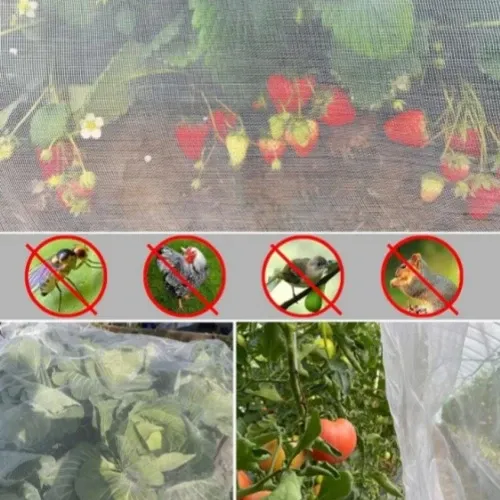-
 Afrikaans
Afrikaans -
 Albanian
Albanian -
 Amharic
Amharic -
 Arabic
Arabic -
 Armenian
Armenian -
 Azerbaijani
Azerbaijani -
 Basque
Basque -
 Belarusian
Belarusian -
 Bengali
Bengali -
 Bosnian
Bosnian -
 Bulgarian
Bulgarian -
 Catalan
Catalan -
 Cebuano
Cebuano -
 China
China -
 Corsican
Corsican -
 Croatian
Croatian -
 Czech
Czech -
 Danish
Danish -
 Dutch
Dutch -
 English
English -
 Esperanto
Esperanto -
 Estonian
Estonian -
 Finnish
Finnish -
 French
French -
 Frisian
Frisian -
 Galician
Galician -
 Georgian
Georgian -
 German
German -
 Greek
Greek -
 Gujarati
Gujarati -
 Haitian Creole
Haitian Creole -
 hausa
hausa -
 hawaiian
hawaiian -
 Hebrew
Hebrew -
 Hindi
Hindi -
 Miao
Miao -
 Hungarian
Hungarian -
 Icelandic
Icelandic -
 igbo
igbo -
 Indonesian
Indonesian -
 irish
irish -
 Italian
Italian -
 Japanese
Japanese -
 Javanese
Javanese -
 Kannada
Kannada -
 kazakh
kazakh -
 Khmer
Khmer -
 Rwandese
Rwandese -
 Korean
Korean -
 Kurdish
Kurdish -
 Kyrgyz
Kyrgyz -
 Lao
Lao -
 Latin
Latin -
 Latvian
Latvian -
 Lithuanian
Lithuanian -
 Luxembourgish
Luxembourgish -
 Macedonian
Macedonian -
 Malgashi
Malgashi -
 Malay
Malay -
 Malayalam
Malayalam -
 Maltese
Maltese -
 Maori
Maori -
 Marathi
Marathi -
 Mongolian
Mongolian -
 Myanmar
Myanmar -
 Nepali
Nepali -
 Norwegian
Norwegian -
 Norwegian
Norwegian -
 Occitan
Occitan -
 Pashto
Pashto -
 Persian
Persian -
 Polish
Polish -
 Portuguese
Portuguese -
 Punjabi
Punjabi -
 Romanian
Romanian -
 Russian
Russian -
 Samoan
Samoan -
 Scottish Gaelic
Scottish Gaelic -
 Serbian
Serbian -
 Sesotho
Sesotho -
 Shona
Shona -
 Sindhi
Sindhi -
 Sinhala
Sinhala -
 Slovak
Slovak -
 Slovenian
Slovenian -
 Somali
Somali -
 Spanish
Spanish -
 Sundanese
Sundanese -
 Swahili
Swahili -
 Swedish
Swedish -
 Tagalog
Tagalog -
 Tajik
Tajik -
 Tamil
Tamil -
 Tatar
Tatar -
 Telugu
Telugu -
 Thai
Thai -
 Turkish
Turkish -
 Turkmen
Turkmen -
 Ukrainian
Ukrainian -
 Urdu
Urdu -
 Uighur
Uighur -
 Uzbek
Uzbek -
 Vietnamese
Vietnamese -
 Welsh
Welsh -
 Bantu
Bantu -
 Yiddish
Yiddish -
 Yoruba
Yoruba -
 Zulu
Zulu
steel sieve mesh
Understanding Steel Sieve Mesh A Key Element in Filtration and Separation
Steel sieve mesh is an essential component in various industries, playing a crucial role in filtration, separation, and structural integrity. Its design and material properties make it suitable for a wide range of applications, from industrial processes to home gardening.
What is Steel Sieve Mesh?
Steel sieve mesh consists of a woven or welded network of metal wires that create a series of openings or “sieves.” These meshes vary in terms of wire diameter, mesh size, and the type of material used. Stainless steel is a popular choice due to its corrosion resistance, durability, and strength. The size of the openings can range from coarse to fine, depending on the specific needs of the application.
Applications of Steel Sieve Mesh
1. Industrial Filtration Steel sieve mesh is widely used in the food and beverage industry, chemical processing, and pharmaceuticals. In these sectors, it helps in filtering out unwanted particles from liquids, ensuring product purity and compliance with safety standards. For instance, in brewing, sieve mesh separates solid grain particles from liquid wort.
2. Mining and Aggregate In mining operations, steel sieve mesh is indispensable for sorting and classifying mined materials. It efficiently separates fine particles from larger rocks, optimizing the extraction process. Aggregate production also relies on sieve mesh to grade sand and gravel, ensuring the right size particles for construction applications.
steel sieve mesh

3. Agriculture and Horticulture Farmers and gardeners utilize steel sieve mesh for various tasks, including sifting soil, compost, or fertilizers. The mesh helps in removing clumps and larger debris, ensuring a smoother application of soil amendments. Additionally, it is often used in seed cleaning processes to separate seeds from unwanted materials.
4. Construction and Architecture In construction, steel sieve mesh provides structural support and reinforcement in concrete applications. It is used in the production of precast concrete elements and in the construction of roads, bridges, and other infrastructures. The mesh enhances the tensile strength of the concrete, ensuring durability and longevity.
5. Safety and Security Steel sieve mesh is also employed in safety applications, such as fencing and barrier creation. Its robust nature ensures that it can withstand external forces, making it an excellent choice for protective structures around properties or on construction sites.
Choosing the Right Steel Sieve Mesh
When selecting the appropriate steel sieve mesh for a specific application, several factors must be considered. The mesh size is critical, as it determines the size of particles that can pass through. Additionally, the wire diameter can impact the strength and durability of the mesh. Other considerations include the environment in which the mesh will be used, the type of materials being filtered or separated, and any regulatory standards that must be met.
Conclusion
Steel sieve mesh is a versatile and vital tool across multiple industries, contributing to efficiency, safety, and quality. Its ability to provide effective filtration and separation processes makes it indispensable in modern manufacturing and agricultural practices. Understanding the properties and applications of steel sieve mesh can help industries optimize their operations and ensure the highest standards of performance and reliability. Whether in a factory, a farm, or a construction site, steel sieve mesh continues to be an integral element in achieving successful outcomes.
-
Shipping Plastic Bags for Every NeedNewsJul.24,2025
-
Safety Netting: Your Shield in ConstructionNewsJul.24,2025
-
Plastic Mesh Netting for Everyday UseNewsJul.24,2025
-
Nylon Netting for Every UseNewsJul.24,2025
-
Mesh Breeder Box for Fish TanksNewsJul.24,2025
-
Expanded Steel Mesh Offers Durable VersatilityNewsJul.24,2025











